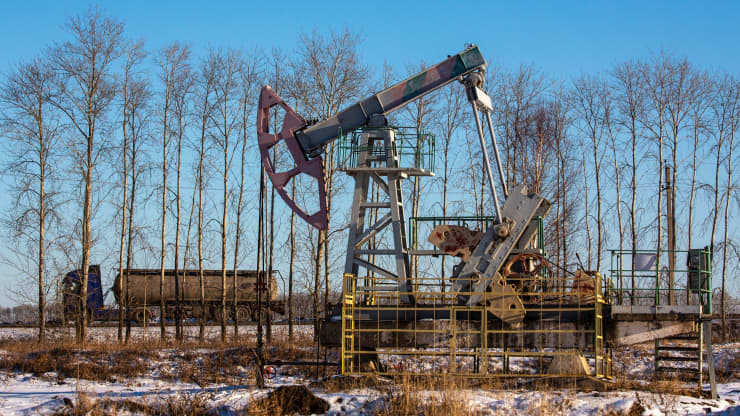Oil prices climbed more than 1% on Thursday, extending their rally for a second day on concerns over market tightness after OPEC forecast a steeper rise in demand, even as investors awaited the outcome of U.S.-Iran nuclear talks that could add crude supplies quickly to global markets.

Brent crude futures rose $1.18, or 1.3% to $92.71 a barrel by 12:28 a.m. ET (1728 GMT), while U.S. climbed Texas Intermediate crude was $1.62, or 1.8% higher $91.29 a barrel.
The benchmarks earlier this week hit seven-year highs on geopolitical concerns across Europe and the Middle East, and as robust demand recovery from the coronavirus pandemic has kept global oil supplies snug, with inventories at key fuel hubs globally hovering at multi-year lows.
The Organization of the Petroleum Exporting Countries said in a monthly report that world oil demand might rise even more steeply this year as the global economy posts a strong recovery from the pandemic.
The report also showed OPEC undershot a pledged oil output rise in January under its pact with allies to gradually unwind record output cuts put in place in 2020.
“Oil supply is tight and spare capacity is sparse, creating a tight market environment with a bullish impact on prices,” Rystad Energy’s senior oil market analyst Louise Dickson said.
Overall, thin supplies of crude oil, low storage and global output that is nearing a maximum are all working to drive up prices, according to Mitsubishi UFJ Financial Group (MUFG).
“Oil markets remain extremely tight playing into our bullish thesis that the simultaneous deficit of depleting inventories, thinning spare capacity and structural underinvestments are blending towards extremely distressed levels”.
U.S. crude inventories fell unexpectedly last week to their lowest since October 2018, while fuel demand hit a record high, government data showed on Wednesday.
The U.S. drawdown reversed a slide in prices spurred by the resumption of indirect U.S.-Iran nuclear talks on Tuesday. A deal could lift U.S. sanctions on Iranian oil and ease global supply tightness.
Russian Foreign Minister Sergei Lavrov, however, said there was still a long way to go before a 2015 deal with world powers restricting Iran’s nuclear advances could be revived.
“A deal is far from guaranteed though and with the market so tight, crude will likely remain elevated. It has helped take some pressure off but as we saw yesterday, there’s still plenty willing to buy into shallow dips,” said Craig Erlam, senior market analyst at OANDA.
The White House publicly pressured Iran on Wednesday to revive the 2015 Iran nuclear agreement quickly, saying that it will be impossible to return to the accord if a deal is not struck within weeks.





